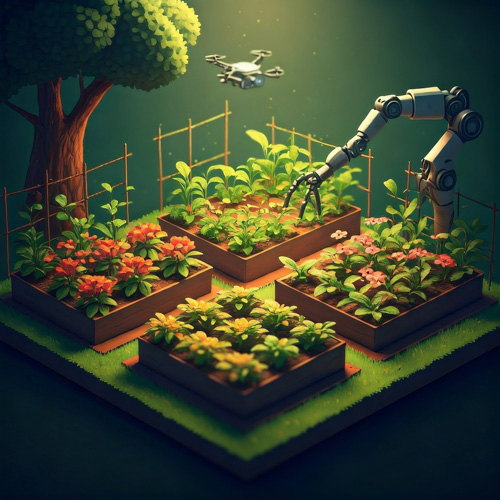Alright, let’s talk about getting older. We know, it’s not everyone’s favorite topic. But as time undeniably marches on, we find ourselves firmly in the Generation X demographic. This makes issues around aged care and independence less abstract. They become more personal.
Traditionally, thinking about aged care might seem like something far off. Or perhaps it brings to mind challenges faced by our aging parents. However, a recent article in The Senior shares insights from scientific futurist Dr. Catherine Ball. She suggests the future of aging is being rapidly reshaped by Artificial Intelligence. This feels both futuristic and current.
According to the article, AI is more than just chatbots or optimizing supply chains. It’s poised to revolutionize aged care and independent living. It draws inspiration from advancements already happening in countries like Japan and South Korea. These nations are also dealing with aging populations. Dr. Ball emphasizes that AI innovations are not a distant possibility. They are a present reality. Australia needs to embrace them rather than fall behind.
So, what does this actually look like? We’re not necessarily talking about Rosie from The Jetsons. At least, not yet. Think more about AI tools that help with health monitoring. They could predict potential issues early. They might even offer companionship to combat loneliness. The article mentions AI-powered exoskeletons to help with mobility. This might sound like science fiction. But it is becoming practical elsewhere in the world.
For our generation, this has a few implications. First, we are often in the sandwich generation, caring for both children and parents. AI in aged care could offer much-needed support. It could potentially improve the quality of life for our senior relatives. Remote monitoring, for example, might offer peace of mind. It wouldn’t require constant physical presence.
Second, and perhaps less comfortably, these technologies will likely be part of our own aging journey. Relying on AI might feel a bit strange. But the potential benefits for staying independent and safe are significant. Imagine smart home systems that learn our habits. They could send alerts for unusual activity. Or consider AI companions that provide reminders and interaction.
Naturally, the article also discusses the challenges. This is important. Integrating these technologies requires careful thought about ethics and data privacy. We must also ensure technology doesn’t replace essential human connection. Adoption is another hurdle. We need to make sure these tools are easy to use and available to those who need them most.
The main point here isn’t that robots are taking over. It’s that technology, specifically AI, offers real solutions to some challenges of aging. We might approach our own later years with a typical Gen X skepticism. But staying informed about these advancements is simply smart. The future of aging is coming. And it’s bringing some interesting technology with it.


Leave a Reply